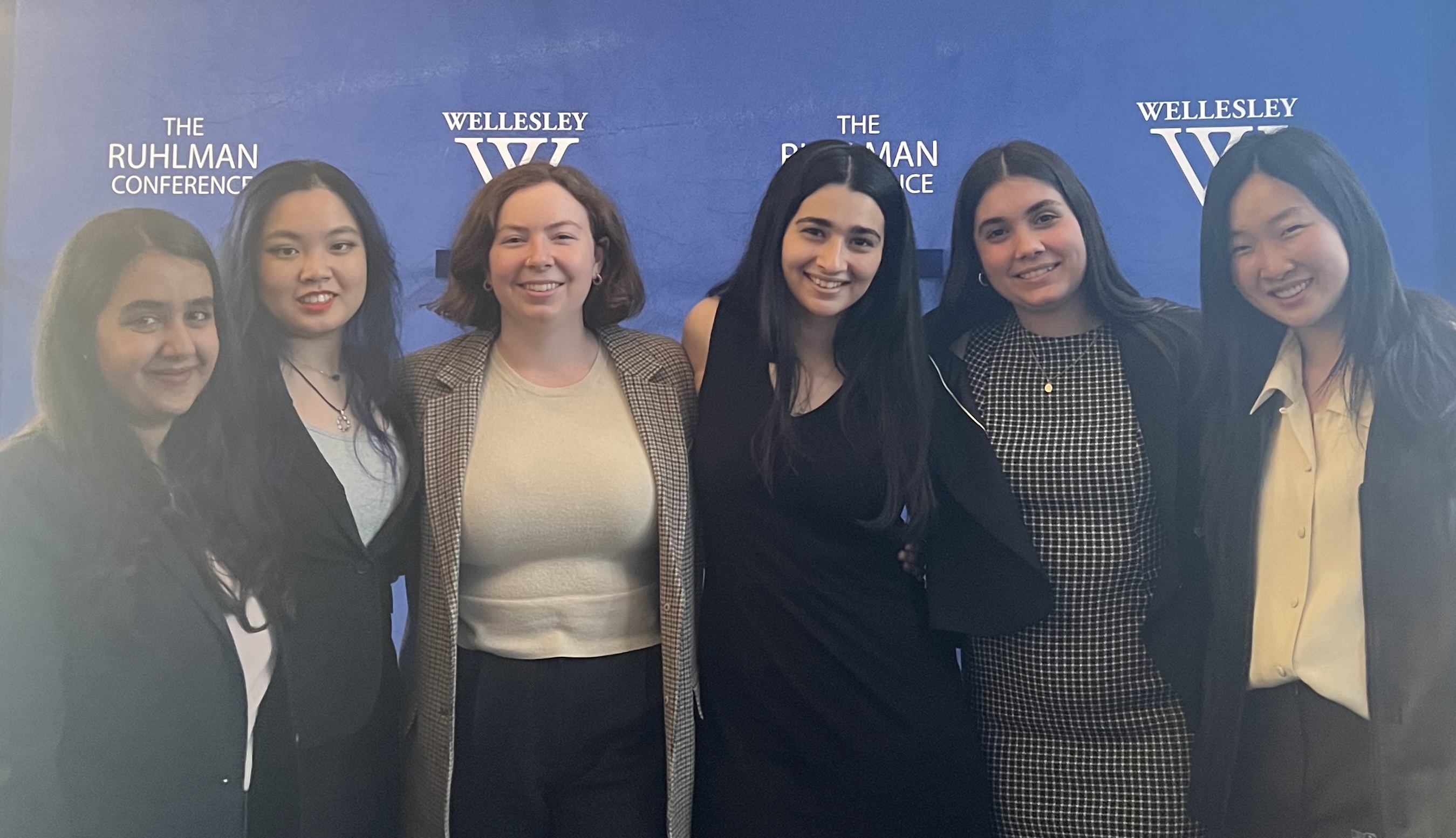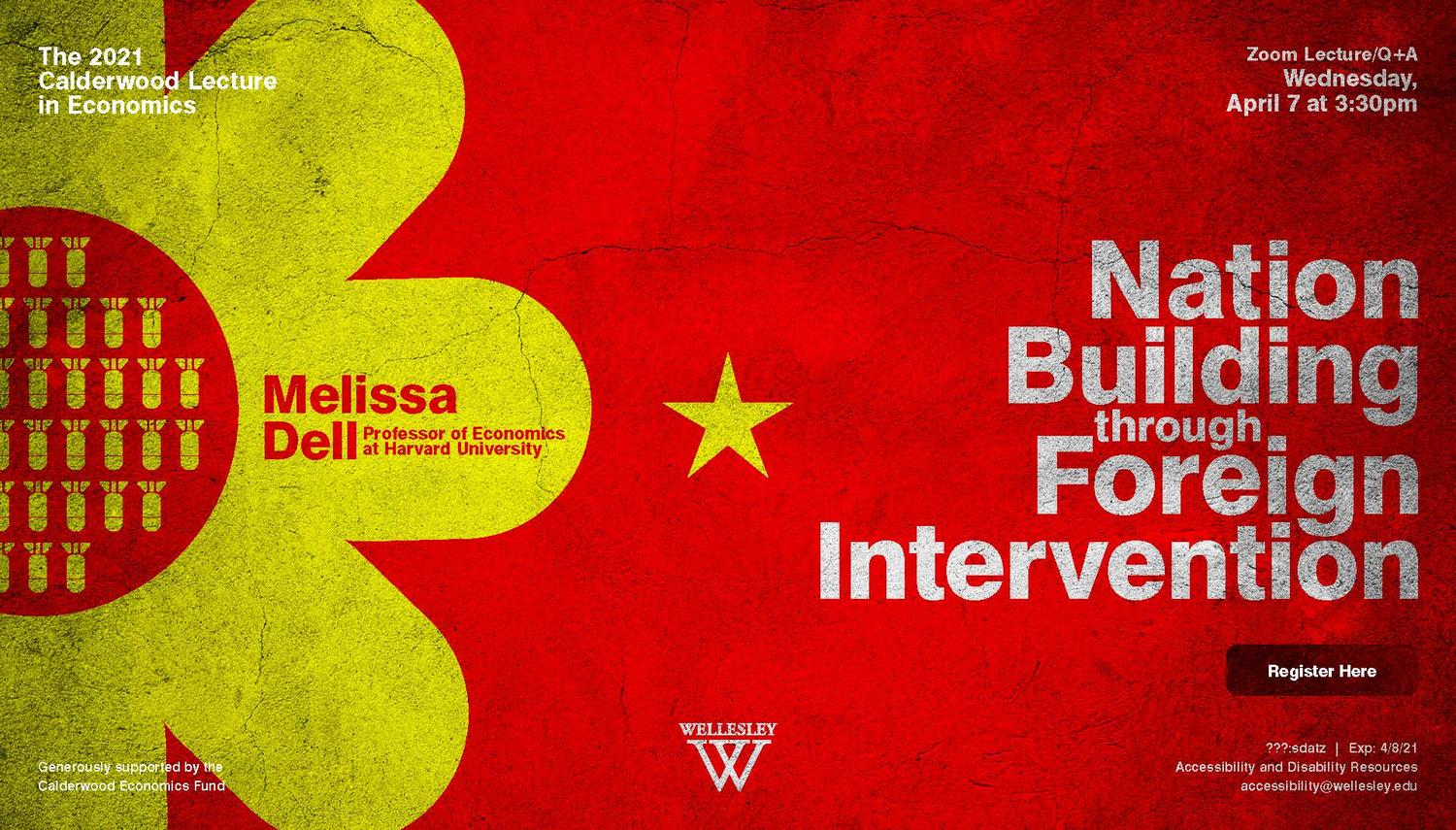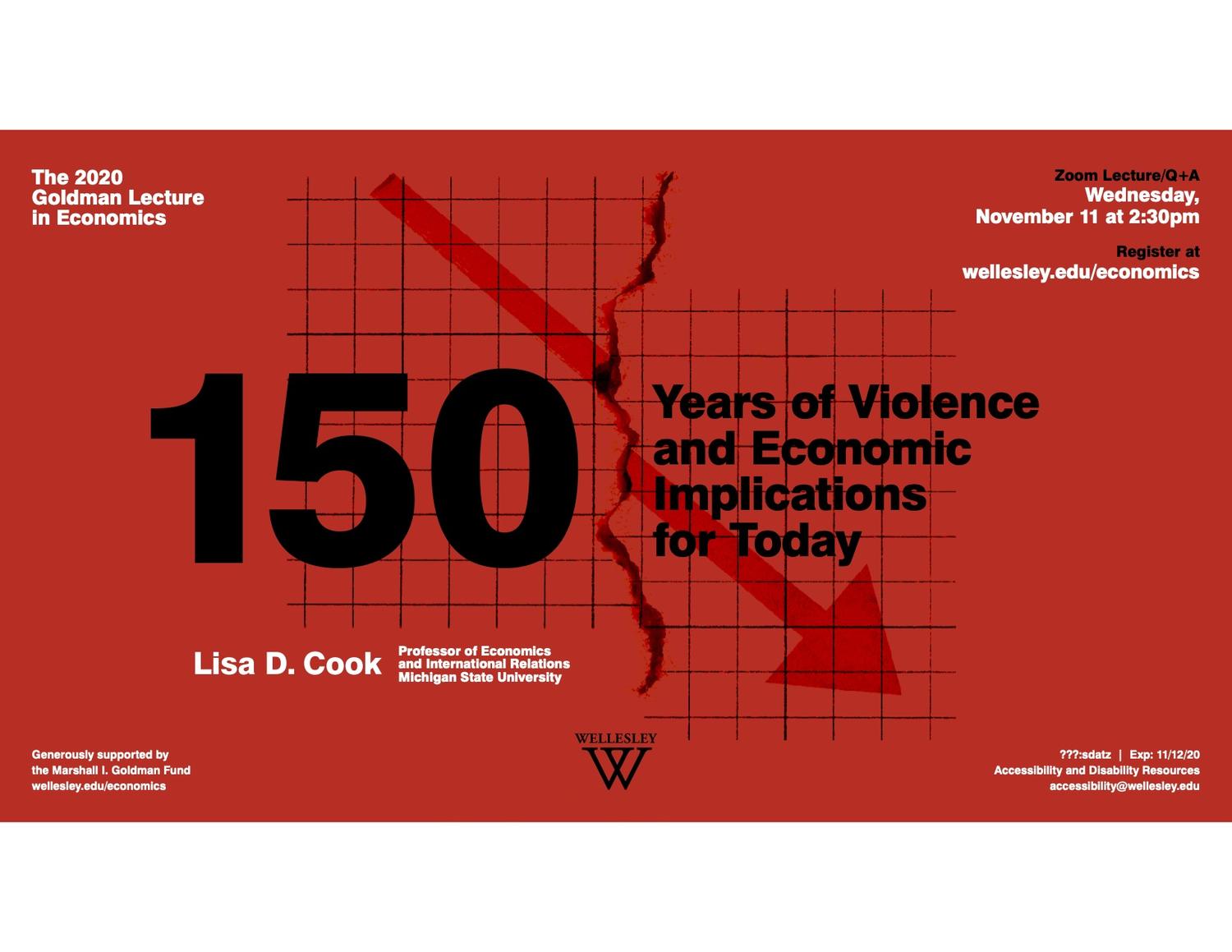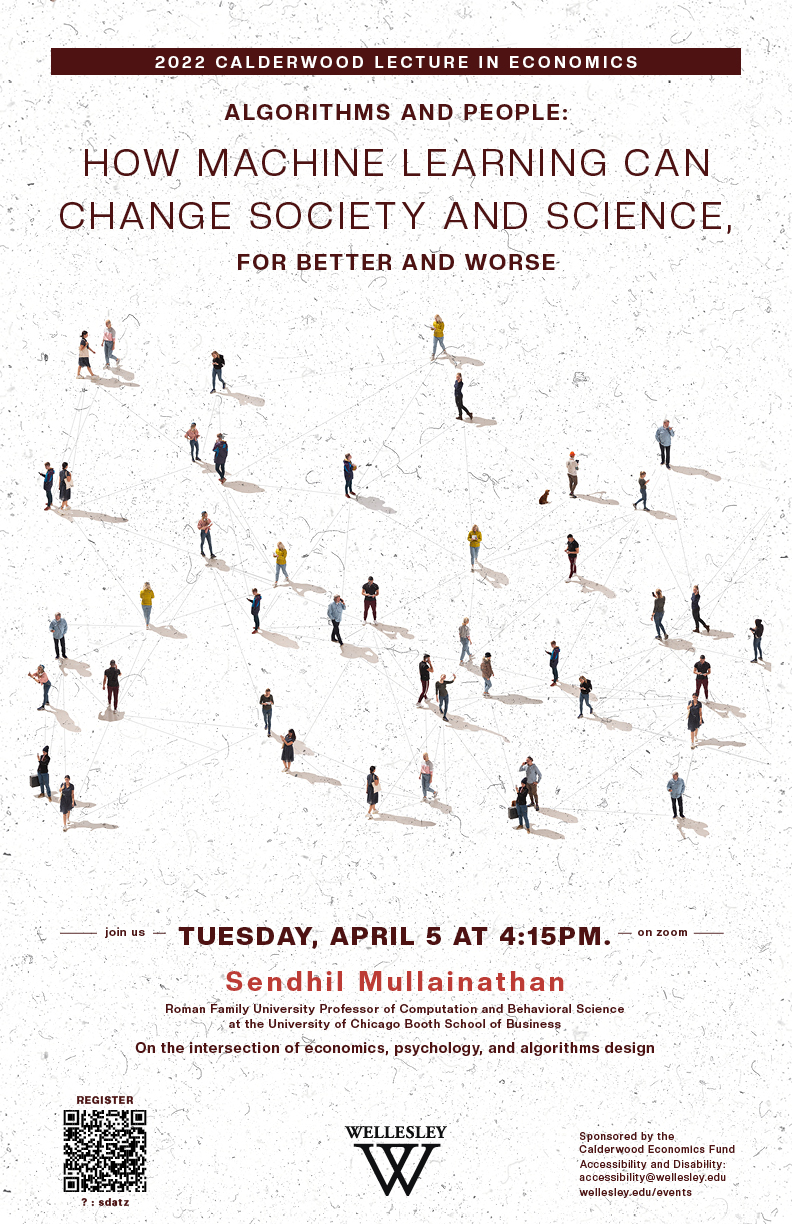Welcome to the Wellesley Economics Department!

Thesis students from the class of '23 present their work at the Ruhlman conference, April 2023.
We look forward to introducing you to economics or helping you further your study of the field. Please see this overview of Economics @ Wellesley and this guide to determine where to start your study of economics. We look forward to meeting you!
What is Economics?
Economics is a social science that analyzes how a society makes resource allocation choices through the production and distribution of goods and services. The appeal of economics lies in its application of theory and quantitative techniques to contemporary problems. Indeed, many students conclude that it would be difficult to be informed citizens without having at least a basic understanding of economics. Economics differs from the study of business in that its scope is broader and more analytical, encompassing the firm, labor and capital markets, consumer choice, and government economic policy.
How We Study Economics
The study of economics has two main branches, each of which identifies one type of decision-maker and the alternatives available to that decision-maker. Microeconomics looks at choice problems and the economist's rules and concepts for solving them in the realm of individual decision-makers: the individual, the firm, the household, the college community, the labor union. Macroeconomics deals with the same general problems—choices and how the economist's set of tools helps in making decisions—at a more aggregated level: a country or a broader political entity such as the European Community. Economics also provides a set of quantitative tools that are very useful for estimating causal relationships. These tools can be applied to answer a wide range of questions, such as how funding for vaccination programs affects child mortality or how electing judges affects racial gaps in sentencing.
Why Study Economics?
Economics can give you invaluable insight into how the contemporary world works, excellent training and practice in qualitative and quantitative reasoning, and an understanding of the complex political economic issues that face the United States and the world today.
After graduation, what you "do with economics" depends on you. Many economics majors go on to graduate school and accept positions in economics, law, or business; others become journalists, artists, social activists, and more. If you do not enjoy the study of economics, you should not feel compelled to continue beyond the introductory level even if you are interested in business; it is simply not true that an economics major or minor is needed for admission to a management trainee position or to graduate schools of business.
Department Events
The Economics Department hosts a number of exciting events throughout the year highlighting prominent speakers in the field of Economics through our annual Goldman Lecture and the Calderwood Speaker series. In various lectures, seminars and discussions, topics of interest are explored in detail by our distinguished faculty giving our students multiple opportunities to enhance what they have learned in the classroom.
The 2023 Goldman Lecture in Economics was given by Dr. Susan M. Collins, President and CEO of the Federal Reserve Bank of Boston. The lecture was given in Tishman Commons on October 11th and was well attended.
Watch the lecture HERE.

The 2023 Calderwood Lecture in Economics was given by Dr. Trevon Logan, Hazel C. Youngberg Trustees Distinguished Professor of Economics. The lecture was given in Tishman Commons on April 11th.

The 2022 Goldman Lecture in Economics was given by Nancy Rose, Charles P. Kindleberger Proffesor of Applied Economics at MIT. The lecture was given in Tishman Commons on September 20 and was well attended.

The 2022 Calderwood Lecture was given virtually by Sendhil Mullainathan, the Roman Family University Professor of Computation and Behavioral Science at the University of Chicago Booth School of Business. The lecture was held on Tuesday, April 5.

The 2021 Calderwood Lecture was held virtually April 7, 2021. The speaker was Melissa Dell, Professor of Economics at Harvard University. The topic of the lecture was Nation Building through Foreign Intervention.

The 2020 Goldman Lecture was held virtually November 11, 2020. The speaker was Lisa D. Cook, Professor of Economics and International Relations at Michigan State University. The topic of the lecture was 150 Years of Violence and Economic Implications for Today. 
The Impact of the Global Pandemic and the Policy Responses
Economics Department Faculty Zoom Panel, April 16, 2020
Faculty members Joe Joyce, Robin McKnight and Dan Sichel discuss the Covid-19 pandemic and policy responses and answer student questions. Panel moderated by Kristin Butcher.
Watch recorded panel here.

